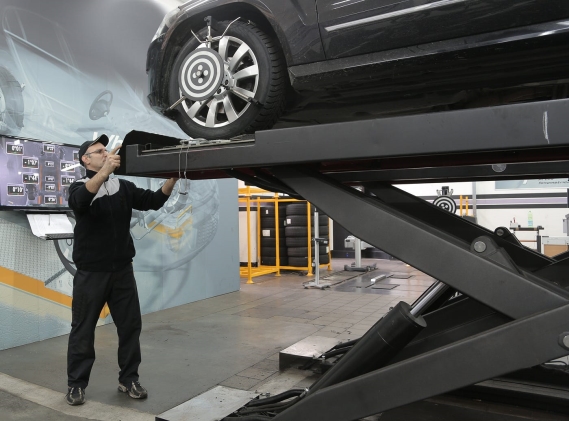The automotive industry is experiencing a transformative wave, driven by innovations that promise to redefine the driving experience and reshape the future of transportation. From electric vehicles (EVs) and autonomous driving to cutting-edge safety features and sustainable materials, automotive excellence is undergoing a revolutionary evolution. In this article, we will explore the groundbreaking innovations that are propelling the industry forward, setting the stage for a new era of driving.
Electric Revolution: Powering Tomorrow’s Drive
The shift towards electric vehicles represents a monumental leap in the quest for sustainable and environmentally friendly transportation. Electric vehicles, powered by advanced battery technologies, are becoming increasingly mainstream, offering a clean and efficient alternative to traditional internal combustion engines. Companies are investing heavily in research and development to enhance battery efficiency, reduce charging times, and extend the range of electric vehicles, making them more accessible and practical for a broader audience.
The rise of electric vehicles is not just limited to passenger cars; commercial vehicles, from buses to delivery trucks, are also electrifying their fleets. This trend is a testament to the industry’s commitment to reducing carbon emissions and mitigating the environmental impact of traditional transportation methods.
Autonomous Driving: Navigating the Future Safely
The concept of self-driving cars has evolved from science fiction to a tangible reality. Autonomous driving technology is advancing at a rapid pace, with companies testing and deploying semi-autonomous and fully autonomous vehicles on the road. These vehicles leverage artificial intelligence, machine learning, and an array of sensors to navigate complex traffic scenarios and ensure passenger safety.
The benefits of autonomous driving extend beyond convenience. The technology has the potential to significantly reduce traffic accidents, improve traffic flow, and provide newfound mobility for individuals with disabilities or limited access to transportation. However, as the industry embraces this transformative technology, ethical and regulatory considerations must be addressed to ensure the safe integration of autonomous vehicles into our daily lives.
Smart Connectivity: A Connected Driving Experience
In the era of the Internet of Things (IoT), automobiles are becoming more than just modes of transportation; they are evolving into smart, connected devices. Modern vehicles are equipped with advanced infotainment systems, connected services, and vehicle-to-everything (V2X) communication, enhancing the overall driving experience.
Smart connectivity features enable real-time traffic updates, remote vehicle monitoring, and seamless integration with mobile devices. From advanced navigation systems to voice-activated controls, these innovations prioritize safety and convenience, transforming the way drivers interact with their vehicles.
Safety First: Advanced Driver-Assistance Systems (ADAS)
Safety remains a top priority in automotive innovation. Advanced Driver-Assistance Systems (ADAS) leverage sensors, cameras, and radar technology to enhance vehicle safety by providing warnings and automated interventions. Features such as adaptive cruise control, lane-keeping assist, automatic emergency braking, and parking assistance contribute to a safer driving environment.
As technology continues to advance, the industry is exploring the integration of artificial intelligence to enhance predictive safety features. These systems can analyze a driver’s behavior, monitor road conditions, and anticipate potential hazards, ultimately preventing accidents and saving lives.
Sustainable Materials: Eco-Friendly Manufacturing
Innovations in automotive excellence extend beyond the vehicle’s performance and features to the materials used in manufacturing. Sustainable practices are gaining traction as automakers seek eco-friendly alternatives to traditional materials. Recycled plastics, bio-based materials, and lightweight composites are being incorporated into vehicle design to reduce environmental impact and improve fuel efficiency.
The push towards sustainable materials not only aligns with global efforts to combat climate change but also reflects consumer preferences for environmentally conscious products. As sustainability becomes a key differentiator in the industry, automakers are investing in research and development to create vehicles that are not only high-performing but also environmentally responsible.
Conclusion
The automotive industry is at the cusp of a transformative era, where innovations in electric propulsion, autonomous driving, smart connectivity, safety, and sustainability are redefining the concept of automotive excellence. As these technologies continue to mature, the driving experience will become more efficient, enjoyable, and sustainable.
The future of automotive excellence lies in a harmonious blend of technological innovation, environmental responsibility, and a commitment to enhancing the overall driving experience. As consumers and industry stakeholders embrace these innovations, the road ahead promises to be paved with unprecedented advancements, steering us toward a future where driving is not only a means of transportation but a journey into the realms of technological marvel and sustainable excellence.





